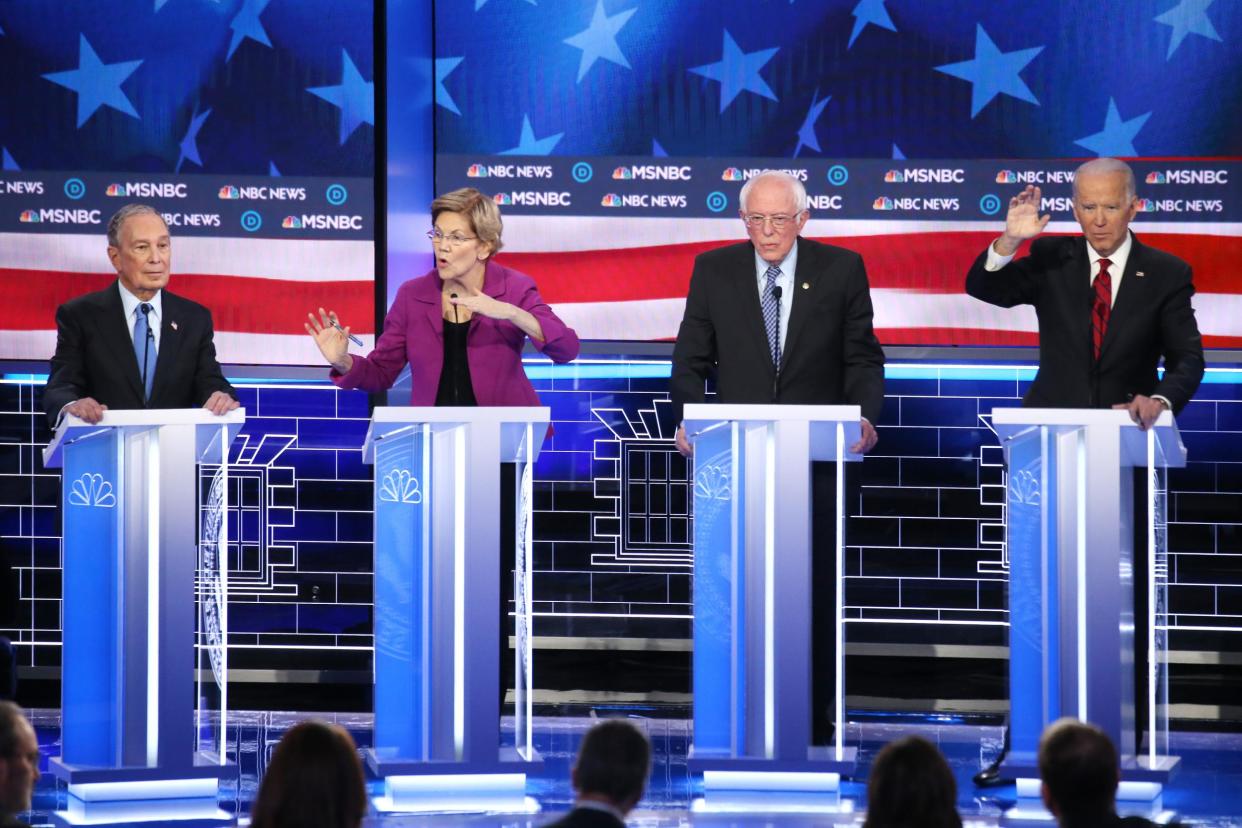Every Democratic candidate at the Las Vegas debate made a grave error by ignoring Bernie Sanders

Mike Bloomberg is not the leading candidate in the race for the Democratic nomination. However, judging by the ire directed at the former New York City mayor by other candidates during the Las Vegas debate, a casual observer would think Bloomberg was lapping the field.
Bloomberg, who didn't compete in Iowa or New Hampshire, has still managed to vault himself into third place nationally, thanks in large part to an advertising blitz in the hundreds of millions. But the candidate leading in national polls, Bernie Sanders, went mostly unscathed in the debate — which seems like a major oversight by his competitors.
Joe Biden, Elizabeth Warren and their ilk are making the same mistake Republicans made in 2015 and 2016 during the GOP primaries. Then, candidates made the mistake of thinking Donald Trump couldn't win the nomination and instead focused on launching attacks on non-leading candidates. Jeb Bush went after Marco Rubio. Marco Rubio went after Ted Cruz. Ted Cruz went after Jeb Bush. All the while, Trump continued to rise in the polls, and, once the voting started, raked in the delegates.
That looms large in the Democratic primary race, particularly on March 3, otherwise known as "Super Tuesday." For example, in a recent California primary poll, Bernie Sanders opened up an 18-point lead over his rivals with 32 per cent. The next-highest is Joe Biden, with 14 per cent, followed by Elizabeth Warren with 13 per cent. Bloomberg and Pete Buttigieg were each at 12 per cent. Those are critical numbers because of the rules for California's primary. The state awards 297 pledged district-level delegates — for candidates that get at least 15 per cent of the statewide vote. There are another 198 delegates among at-large and pledged party delegates available for the taking. Sanders could potentially gain over 300 delegates from California alone.
Suddenly, attacking Mike Bloomberg doesn't seem like the best strategy, despite the punditocracy’s glee at the pile-on.
The loud praise for Warren and her pointed attacks against Bloomberg loomed large following the debate. To her credit, she did land some blows, and Bloomberg was clearly not ready for it. He looked befuddled, and his responses likely had his campaign staff shaking their heads.
But Bloomberg recovered in the second hour of the debate, delivering some zingers of his own, and within a week, no one will remember what Warren did in the debate. Remember, people thought Kamala Harris pushed herself to the forefront in the field when she attacked Joe Biden over the issue of busing. In the current political landscape, such moments are fleeting.
People such as James Carville see the long game. He asked, "Do we want to be an ideological cult, or do we want to have a majoritarian instinct to be a majority party?" while talking about his concerns surrounding a Bernie Sanders candidacy. Mike Bloomberg may have some baggage, and all the so-called "moderates" in the race, including Biden, are promising a progressive agenda that's further to the left of Barack Obama in 2008.
Still, it's a far cry from the radical agenda espoused by Bernie Sanders. That's why it was a tactical mistake to focus on Bloomberg. Sanders continues to build his lead in the Democratic primary despite Joe Biden getting viewed in polling as the best candidate to defeat Trump, particularly in battleground states critical for Democrats to have any chance of taking back the White House.
The next debate is in South Carolina on February 25, four days before the South Carolina primary. If any polls get released over the next five days showing Sanders increasing his lead nationally, the other candidates better pay attention and not pretend the guy with a lot of money to spend is the frontrunner. Otherwise, they may watch as the Democratic Party nominates a candidate who is not a Democrat to be their 2020 presidential nominee.


